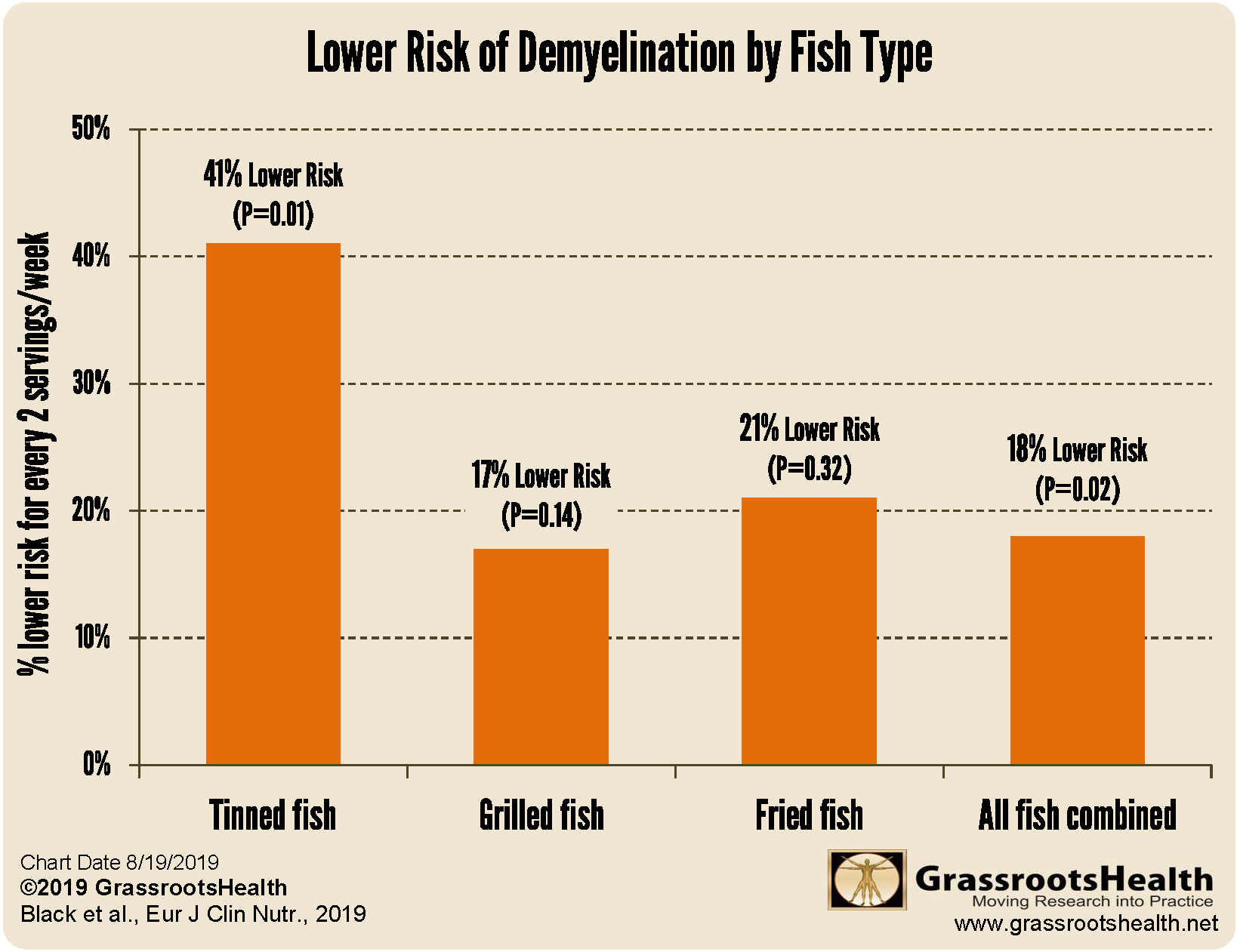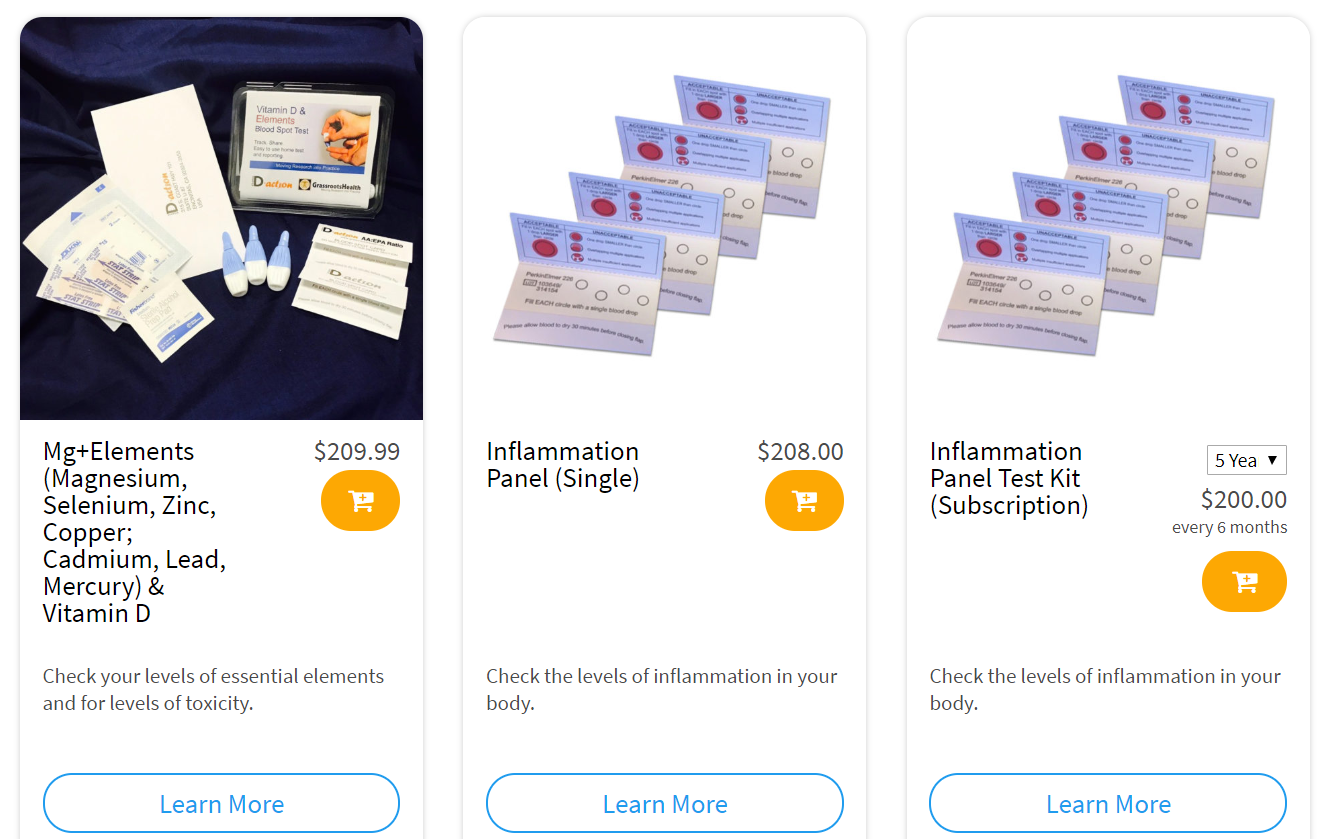Published on August 22, 2019
 Multiple sclerosis (MS) is a chronic, auto-immune disease that affects the central nervous system. In MS, the immune system attacks the protective covering of nerves which disrupts the brain’s ability to communicate with the rest of the body.
Multiple sclerosis (MS) is a chronic, auto-immune disease that affects the central nervous system. In MS, the immune system attacks the protective covering of nerves which disrupts the brain’s ability to communicate with the rest of the body.
This month (August 2019), results were published from a study assessing the association between fish consumption and risk of a first diagnosis of central nervous system demyelination, which is damage to myelin and a common precursor to MS, among 249 cases (people with demyelination) and 438 controls (people without demyelination).
What were the findings of the study?
The researchers found that for every 2 fish servings/week, there was an 18% lower risk of demyelination (P=0.02). When assessing just tinned fish, which is predominately fatty fish that contain higher amounts of vitamin D and omega-3 fatty acids, there was a 41% lower risk for every 2 servings/week (P=0.01). Grilled and fried fish also showed lower risks, but they were not statistically significant (P>0.05).
These associations were adjusted for other risk factors such as smoking, socio-economic status, and diet as well as vitamin D level and omega-3 supplement use.
Are you getting enough omega-3s?
To know if you are eating enough fish and getting enough omega-3s, make sure you know your Omega-3 Index and level of vitamin D! Testing these levels and taking daily steps to keep your Omega-3 Index at a target of at least 8%, and your vitamin D at a target level of 40-60 ng/ml (100-150 nmol/L), is important for all stages of health. Find out your levels today! Log on to the shop (click the link below) to get your tests and see for yourself if your level can be improved.
Make sure you track your results before and after, about every 6 months!
Click Here to Access the Shop Page
How can I track my nutrient intake and levels over time?
To help you track your supplement use and nutrient levels, GrassrootsHealth has created an online tracking system called myData-myAnswers. For each specific supplement, you can track what days you take it, how much, and many other details. This will help you know your true supplemental intake and what patterns of use work for you to reach and maintain optimum nutrient levels. Check it out today!








